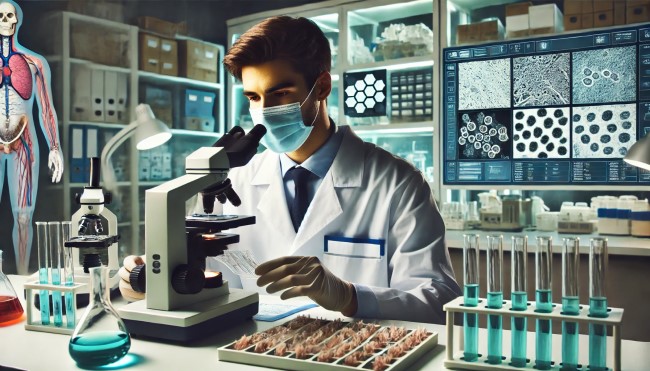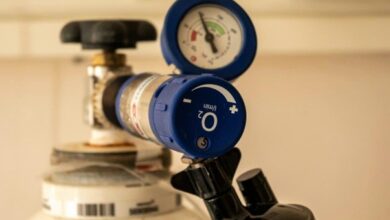Jenny Pope DVM: A Renowned Veterinary Pathologist’s Journey in Animal Health Diagnostics

Veterinary pathology is an essential aspect of veterinary medicine that focuses on studying and diagnosing diseases in animals. Dr Jenny Pope, DVM, a significant figure in this field, has made tremendous strides in diagnostic veterinary pathology. This article sheds light on her professional journey, contributions to the field, and veterinary pathologists’ vital role in maintaining animal health.
The Role of Veterinary Pathologists in Animal Health
Veterinary pathologists are at the forefront of diagnosing diseases in animals. They collaborate with veterinarians to determine the causes of various health issues and ensure the correct treatments are administered. Pathologists analyze animal tissues, fluids, and organs to identify infections, genetic disorders, cancers, and other ailments. Their work is not limited to domestic pets; it extends to wildlife and livestock, impacting industries like agriculture, public health, and environmental conservation.
Dr. Jenny Pope is a prime example of a dedicated veterinary pathologist who specializes in diagnostic pathology, particularly in livestock and wildlife. Her work has contributed significantly to understanding animal diseases, making her a key figure in the field.
Jenny Pope DVM: Educational Background
Dr. Jenny Pope’s journey began with a deep passion for biology and veterinary medicine. She completed her Doctor of Veterinary Medicine (DVM) degree at the prestigious University of Tennessee, Knoxville, from 2009 to 2013. During her time at the university, she was actively involved in several organizations and societies, such as the Pathology Club, Phi Kappa Phi, and Phi Zeta. Her commitment to academics and veterinary medicine earned her several scholarships, including the Salsbury Scholarship for Veterinary Medicine and the Leon K. and Sara L. Robinson Scholarship.
Before pursuing her DVM, Dr. Pope earned a Bachelor’s in Biology from Bridgewater College. During her undergraduate studies, she participated in a summer research project on gene screening in Streptomyces species. Her undergraduate research experience laid the groundwork for her future contributions to veterinary pathology.
Early Career and Diagnostic Expertise
After earning her DVM, Dr. Jenny Pope further honed her diagnostic skills by completing an Anatomic Pathology Residency at the University of Tennessee. This residency, which spanned from 2013 to 2015, provided her with advanced training in diagnostic pathology, allowing her to work on a wide range of cases involving both domestic and wild animals.
Dr. Pope joined the Thompson Bishop Sparks State Diagnostic Lab in Auburn, Alabama, following her residency in December 2015. She has been an integral part of the lab, serving as a veterinary pathologist for nearly nine years. Her expertise in veterinary pathology includes diagnosing various diseases in livestock, pets, and wildlife, as well as performing necropsies and histopathological evaluations.
Contributions to the Veterinary Pathology Field
Dr. Jenny Pope’s most notable achievement was receiving the AAVLD/ACVP Diagnostic Pathology Resident/Graduate Student Award in 2015. Her award-winning research focused on canine distemper in wildlife, shedding light on a novel genotype that had severe implications for animal populations.
Dr. Pope’s expertise extends beyond diagnostics and has significantly contributed to veterinary toxicology. She has written extensively about livestock diseases, particularly those caused by nitrate/nitrite and ammonia/urea toxicity. Her work has been instrumental in helping veterinarians and farmers understand how these toxins affect cattle, providing insights into preventive measures to avoid herd losses.
Common Animal Diseases Diagnosed by Veterinary Pathologists
Veterinary pathologists like Dr. Jenny Pope encounter a wide variety of diseases in their work. Some of the most common conditions they diagnose include:
- Infectious Diseases: Pathologists identify viral, bacterial, and parasitic infections. Dr. Pope has focused much of her research on viral diseases like canine distemper in wildlife and livestock diseases.
- Toxicology Cases: As mentioned, Dr. Pope has worked on cases involving toxicity in livestock, particularly nitrate/nitrite and ammonia/urea toxicity. These conditions can cause sudden death in cattle, making rapid diagnosis and intervention critical.
- Cancer Diagnosis: Veterinary pathologists also play a key role in diagnosing various forms of cancer in animals. Through tissue biopsies and necropsies, they determine the extent and type of cancer affecting an animal, which is crucial for developing a treatment plan.
- Genetic Disorders: In her role at the diagnostic lab, Dr. Pope has worked on cases involving genetic disorders in livestock and pets. These diagnoses are essential for breeding programs and preventing the spread of genetic diseases.
Veterinary Pathology and Public Health
Veterinary pathologists not only help diagnose diseases in animals but also contribute to public health efforts. Many animal diseases have the potential to spread to humans (zoonotic diseases), making the work of pathologists like Dr Jenny Pope vital for disease control and prevention. By diagnosing diseases early, veterinary pathologists help prevent outbreaks and ensure the health of both animals and humans.
For example, diseases such as rabies, avian influenza, and brucellosis can have devastating effects on human populations if not properly controlled in animal populations. Veterinary pathologists are the first line of defence in identifying these animal diseases, enabling authorities to take preventive measures.
Advancements in Veterinary Pathology: The Role of Technology
The field of veterinary pathology has seen significant advancements in recent years, largely due to technological innovations. Dr. Jenny Pope has been at the forefront of utilizing these technologies in her diagnostic work. Some of the key advancements in veterinary pathology include:
- Digital Pathology: Digital imaging technologies allow pathologists to view high-resolution images of animal tissues, enabling more accurate and faster diagnoses. These technologies also facilitate collaboration among pathologists worldwide.
- Molecular Diagnostics: Techniques such as polymerase chain reaction (PCR) and next-generation sequencing (NGS) have revolutionized the ability to diagnose animals’ infectious diseases and genetic disorders. Dr. Pope has utilized these techniques in her research and diagnostic work, particularly identifying wildlife-related viral diseases.
- Automated Histopathology: Automated systems for tissue processing and slide preparation have significantly improved the efficiency of veterinary diagnostic labs. These systems allow pathologists to focus on interpreting results rather than spending time on manual processes.
The Future of Veterinary Pathology
As the demand for veterinary services continues to grow, the role of veterinary pathologists will become increasingly important. Veterinary pathologists like Dr Jenny Pope are at the cutting edge of animal disease diagnosis, contributing to animal health and public safety.
With advancements in technology and diagnostic techniques, the future of veterinary pathology looks promising. Pathologists will continue to play a vital role in diagnosing and controlling animal diseases, ensuring the health of animals, humans, and ecosystems.
Conclusion
Dr. Jenny Pope, DVM, DACVP, is a shining example of dedication and excellence in veterinary pathology. Her contributions to the field, particularly in diagnostic pathology and toxicology, have significantly impacted animal health. Veterinary pathologists like Dr. Pope are essential to maintaining the health of animal populations, preventing disease outbreaks, and contributing to public health efforts.
As veterinary pathology continues to evolve, professionals like Dr. Jenny Pope will remain at the forefront of innovation and discovery, ensuring the well-being of animals and those who depend on them.



